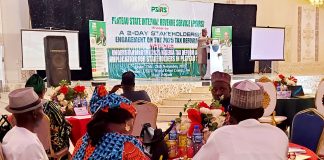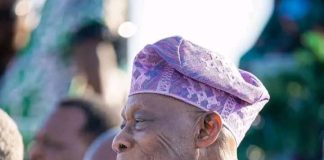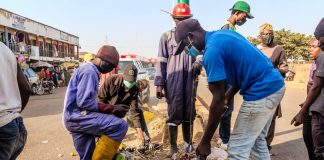The Minister of Humanitarian Affairs and Poverty Reduction, Nentawe Yilwatda, says the federal government is now using Artificial Intelligence (AI) to expand and improve the national social register.
Yilwatda made this known during an interview on Arise TV’s Prime Time programme on Friday.
He explained that the register, which initially focused only on rural poor communities, has now grown from 13 million to 19.7 million people.
“To help someone, you must first know them. You can’t support people you can’t identify. That’s why we started by validating the social register,” he said.
According to him, President Bola Tinubu gave a directive to include poor people living in urban areas in the national register.
“The president ordered that we include the urban poor as well. We used satellite imagery to locate urban slums, then base stations and telecom data to identify phone numbers in those locations,” he said.
Yilwatda added that AI technology was used to verify phone users and generate a list of urban poor individuals.
“AI helped us generate a list of urban poor individuals by verifying those numbers, their access to financial services, and other indicators,” he said.
He noted that the updated social register now includes both rural and urban residents, making it more inclusive and trustworthy.
“So now, the updated social register covers both rural and urban communities, making it more inclusive and reliable,” he added.
Yilwatda revealed that the government is targeting about 15 million households, which translates to around 75 million Nigerians, through its anti-poverty programmes.
“Nigeria has around 43 million households. We’re targeting 15 million with these interventions. Multiply that by an average household size of five, and we’re reaching about 75 million people,” he said.
He also disclosed that around 42% of Nigerians are currently experiencing food poverty.
“We need to differentiate between food poverty and multidimensional poverty. Multidimensional poverty includes a lack of access to education, clean water, healthcare, and financial services. Food poverty, which focuses solely on access to sufficient food, affects roughly 42% of the population,” he said.
He explained that 42% of 200 million Nigerians translates to about 20 million food-poor households.
“If you take 42% of 200 million, that’s about 80 million people. Divide that by an average household size of five, and you have roughly 20 million households affected,” he said.
According to him, the Tinubu administration is reaching over 75% of food-poor families with conditional cash transfers.
“The federal government is targeting 15 million of them. That means over 75% of the food-poor population is being covered through conditional cash transfers,” he added.
Each household, the minister said, receives N75,000, which may not seem like much in the city but makes a real difference in rural areas.
“I know 75,000 might seem insignificant to someone living in the city. But in rural areas, it makes a difference,” he said.
He stated that a joint research effort with the World Bank and civil society groups revealed the positive impact of the cash support.
“We conducted a joint research project with the World Bank and some civil society organisations. It showed that up to 18% of recipients were able to start nano or small-scale businesses with that money,” he said.
“About 82% used the funds to improve food security. And 52% were able to pay school fees for their children.
So, while this is not their sole source of income, it is a meaningful supplement that helps cushion the impact of poverty.”






